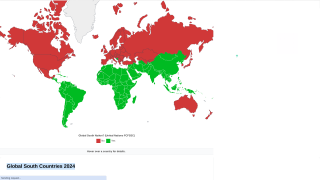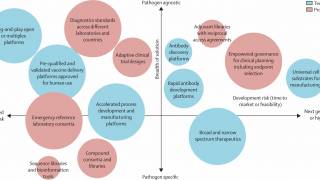Next-Gen RNA Vaccine Technology Focuses on Disease X

The Coalition for Epidemic Preparedness Innovations (CEPI) and Tiba Biotech today announced a new partnership to evaluate next-generation RNA vaccine platform technology.
Through a Call for Proposals issued in January 2022, CEPI sought to advance novel RNA platform technologies based on high-impact innovations that could make RNA vaccines more effective.
Existing RNA vaccines are reactogenic, producing fever or local reactions in many recipients, and attributes of the current technology create barriers to equitable access due to stringent cold-chain requirements and high production costs relative to other vaccines.
Tiba Biotech's innovative platform could offer substantial advantages over existing RNA vaccines when responding to future epidemics or pandemic diseases, stated CEPI's press release on January 12, 2023.
CEPI intends to support the design, development, and preclinical evaluation of an RNA vaccine candidate against Japanese Encephalitis Virus (JEV) – a flavivirus that causes human disease related to dengue, yellow fever, and West Nile viruses.
Dr. Richard Hatchett, CEO of CEPI, commented in a press release on January 12, 2023, "In the past three years, the world has experienced a revolution in vaccinology which saw (mRNA) vaccines being delivered with unprecedented speed and scale."
"mRNA vaccines have been a game changer for the global pandemic response, but there is scope to substantially improve the technology to make it more effective and accessible when responding to future outbreaks."
"We are excited by Tiba Biotech's nanoparticle approach, which we think may reduce adverse reactions and improve the thermostability of mRNA vaccines."
"Such advantages would make mRNA vaccines easier to use and potentially increase their accessibility and acceptability in many countries."
CEPI will provide US$2 million to advance Tiba Biotech's novel RNA nanoparticle delivery platform, RNABL™.
If successful, the parties can extend the initial project to develop vaccine libraries against known pathogens with pandemic risk and novel pathogens with epidemic or pandemic potential that could cause the next 'Disease X.'
Dr. Christian Mandl, co-founder and Chief Scientific Officer of Tiba Biotech, added, "This initial focus on JEV is just the start to developing, expanding, and enhancing RNA vaccine rapid-response capabilities against known and unknown threats."
"We are confident the collaboration with CEPI will demonstrate the unique advantages of our RNABL delivery platform in producing safe and effective mRNA vaccines for the global community."
To deliver an RNA payload, Tiba Biotech uses organic molecules to form biodegradable nanoparticles that are less inflammatory than current lipid nanoparticle (LNP) formulations.
This approach potentially produces vaccines with reduced reactogenicity compared to existing LNP-based vaccines, enhancing their performance and making them more acceptable for general public use.
Tiba Biotech's thermostable nanoparticles can be stored for more extended periods under 4°C refrigeration.
This is particularly suitable for use in low-resource settings without the need for burdensome ultra-cold chain infrastructures, which has hindered the use of COVID-19 RNA vaccines in some countries.
Tiba Biotech has committed to ensuring access for the populations who need them to the JEV vaccine and any additional vaccines developed under the funding agreement, in line with CEPI's Equitable Access Policy.
CEPI is an innovative partnership between public, private, philanthropic, and civil organizations, launched in 2017, to develop vaccines against future epidemics. Its mission is to accelerate the development of vaccines and other biologic countermeasures against epidemic and pandemic threats so they can be accessible to all people in need.
There are existing vaccines targeting JEV.
The Ixiaro® inactivated, adsorbed Vero cell culture-derived vaccine was approved in March 2009 for use in people aged 17 years and older and in May 2013 for use in children two months through 16.
Other JEV news is posted at Precisionvaccinations.com/Japanese Encephalitis Vaccines.
Our Trust Standards: Medical Advisory Committee






